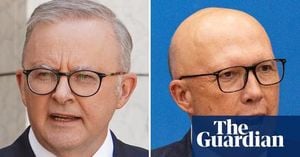Turkey has recently lifted its ban on the popular social media platform Instagram after extensive negotiations with Meta, the parent company. This development marks the conclusion of a tumultuous nine-day period during which Turkish users were unable to access the app due to disputes over content removal and adherence to local laws. The decision to restore access was officially announced on Saturday, August 10, 2024.
The Turkish Transport and Infrastructure Minister, Abdulkadir Uraloglu, made the announcement via social media. He stated, "Following our negotiations with representatives of Instagram, we will unblock access starting from 9:30 PM. Instagram has agreed to respond to our demands." This agreement paved the way for Turkish users to regain access to the platform, from which they had been cut off since the morning of August 2.
The ban originated after officials accused Instagram of failing to remove posts linked to what Turkey categorized as "catalog crimes," which includes serious offenses like child abuse, drug-related content, and actions deemed supportive of terrorist organizations. Uraloglu emphasized the government’s stance by stating, "Since the beginning, we have wanted social media platforms to respect the laws of the Republic." He highlighted the importance of both user compliance and corporate responsibility in maintaining order and security online.
Compounding matters, the Turkish government's discontent with Instagram increased after accusations surfaced claiming the platform blocked condolence messages related to Ismail Haniyeh, the political leader of Hamas, who was assassinated earlier. Uraloglu noted the sensitivity surrounding the issue, which reflects Turkey's supportive stance toward Hamas and its leadership.
This conflict with Instagram is part of Turkey's broader efforts to tighten control over digital communications within its borders, stemming from long-standing concerns about content deemed harmful or provocative. Ministries issued warnings about enforcing stricter measures on social media platforms to curb what they perceive as disinformation and threats to national unity.
The government estimated about 60 to 70 percent of the country's 85 million residents use Instagram, making it not just a popular social media venue but also critical for businesses, with transactions on the platform reportedly amounting to around 57 million dollars daily. Therefore, the ban significantly impacted economic activities for many small enterprises reliant on the app for their marketing and customer engagement strategies.
Officials from Meta responded to criticisms by asserting their compliance with Turkish governmental requests. They noted removing thousands of posts throughout the first half of the year and stated their commitment to cooperating with local laws. Interestingly, as part of the negotiations with Turkish officials, Meta pledged to work collaboratively on issues of censorship, indicating their acknowledgment of Turkey's public sensibilities.
While the ban on Instagram was lifted, access to other popular online services such as the gaming platform Roblox remained restricted for users, prompting discussions about the consistency and rationale behind Turkey's social media policies.
This incident highlights the increasingly complex relationship between technology firms and governmental regulations as countries exert greater control over digital content. Uraloglu’s message also reflects the Turkish government's attempt to solidify its position by balancing economic interests with national security and public perception.
The aftermath of this ban will be closely watched, particularly how Meta will navigate future interactions with Turkish authorities and any potential measures it may enact to avoid similar shutdowns. Given the pivotal role social media plays, not just in communication but also within the commercial sector, both users and businesses are eager for stability and clarity as platforms continue to deal with regulatory demands worldwide.
This nixing of the Instagram ban marks yet another chapter in Turkey's engagement with major social media platforms, illustrating the delicate equilibrium between freedom of expression and governmental oversight.



